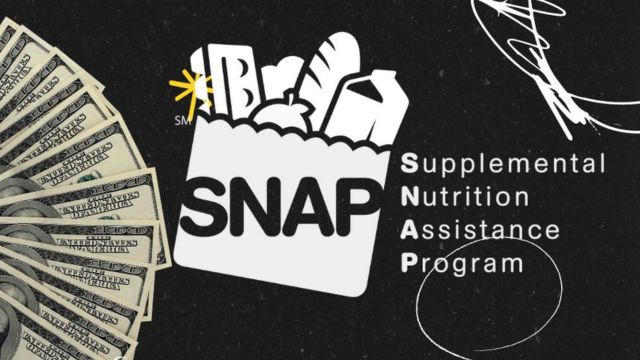In two states, a new program has started to improve the benefits given to people who get the Supplemental Nutrition Assistance Program (SNAP). This program offers extra monthly rewards of up to $60. This program, which is backed by the U.S. Department of Agriculture (USDA), is a creative way to get low-income families to eat healthier by giving them money to buy fruits and veggies.
The USDA is giving $25 million to states to help them test out the Electronic Healthy Incentives Projects (eHIP). The goal of this program is to give SNAP users more money to spend on fruits and vegetables at stores that are taking part. It is the goal of the program to encourage healthier eating by making it easier for SNAP users to buy these important food groups.
People and families with low incomes can get help from SNAP all over the United States, including Washington, D.C., and U.S. territories. Benefits are sent to people every month on Electronic Benefit Transfer (EBT) cards, which can be used to buy certain foods at stores that accept them.
States benefited from the SNAP expansion
Colorado is the second state to use USDA grant funds to implement the eHIP program. Washington state was the first to implement the scheme, with Louisiana set to follow. In Colorado, SNAP users can receive refunds of up to $20 per transaction, for a total of $60 per month. According to the USDA, this project aims to “make it easier for SNAP households to access the healthy foods necessary for lifelong health and well-being.” The same guidelines apply in Washington, where the program began in June 2023.
According to data from KFF Health, the average monthly SNAP payout in Colorado is $214. With the additional incentives provided by the eHIP, beneficiaries who fully utilize the reimbursement may see their benefits grow to $274 per month, representing a 28% increase in their monthly food budget.
Colorado’s eHIP initiative is being implemented at several partner merchants and farmer’s markets. Beneficiaries do not need to take any further measures to participate in the program; all they need to do is shop at one of the designated sites and buy suitable fruits and vegetables. The compensation will be automatically applied to their EBT card.
The majority of Colorado’s participating retailers are market booths and farm stands, which may not be open every day. However, these outlets are dispersed throughout the state’s major population areas, such as Denver, Colorado Springs, and Fort Collins. All fresh and frozen fruits and vegetables are eligible, as long as they do not contain added salt, sugar, or fat. Participants in farmers’ markets can also earn bonuses for purchasing dry fruits, vegetables, and legumes that fulfill the same standards of having no added salt, sugar, or fat.
One important feature of the eHIP is that the bonus monies are not needed to be spent just on fruits and vegetables. The additional benefits can be used to buy other items at any outlet that accepts SNAP benefits, giving beneficiaries more freedom in their food selection.
In addition to this incentive program, SNAP participants can expect a modest boost in their maximum benefits later this year. The USDA has issued a cost-of-living adjustment (COLA) for October, which would increase SNAP benefits in all states and territories except Hawaii. This adjustment is part of the USDA’s continual effort to keep SNAP benefits in line with inflation and rising living costs.
This campaign is part of a larger effort to promote public health by increasing low-income families’ access to nutritious meals. By subsidizing the purchase of fruits and vegetables, the USDA hopes to encourage healthier eating habits, potentially lowering the long-term healthcare expenses associated with poor nutrition. As the initiative grows into other states, it could serve as a model for future SNAP additions focused at improving participants’ health outcomes.

